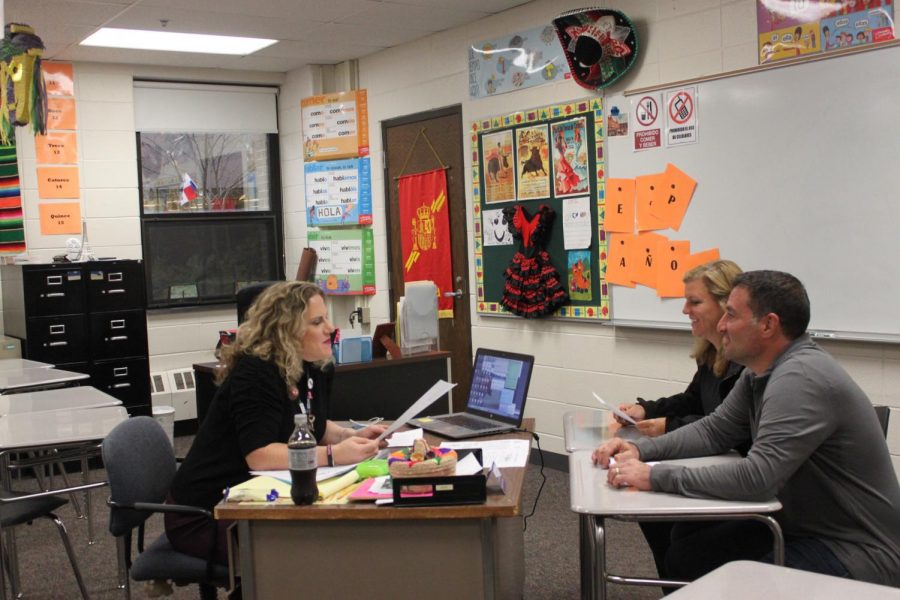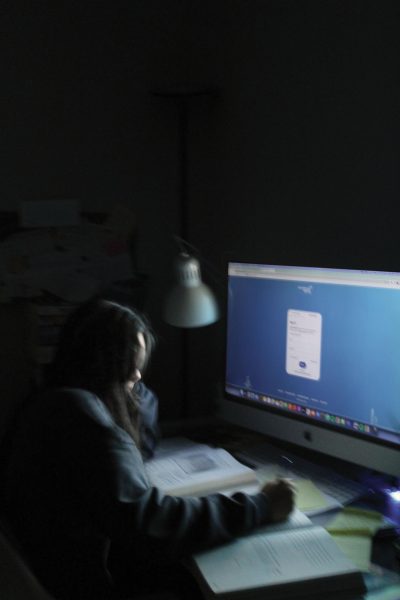Parent frustration towards teacher conferences
parents experience inconveniences wit the parent-teacher conferences system, taking away from student education improvment
Most parents want to do what they can to better their children’s education. The conferences at the end of the first quarter help them succeed in this, but the large pockets of time between meetings and the annoyance of setting up them create an unnecessary frustration that takes away from the main purpose of the conferences: the children.
Parent-Teacher conferences are meant to inform parents of how their kid(s) are progressing in the year so they can take the proper steps to promote or motivate their children in their education for the rest of the year. After experiencing some inconveniences like the time between conferences, some parents might become distracted from focusing during these meetings, or leave them feeling upset by the amount of time they spend waiting.
“I wish there was an option for five minutes transition periods between conferences because I always end up with extra time standing and waiting around for the next conference,” Pam Smith, mother of a sophomore, said. “Having to wait, at times, a half an hour to an hour before the next conference is a waste of my time. I’m just waiting around and that’s not helping my children’s education.”
When parents are involved in their children’s education, both children and parents are likely to benefit. According to ericdigests.org, researchers report that parent participation in their children’s schooling frequently enhances children’s self-esteem, improves children’s academic achievement, improves parent-child relationships, helps parents develop positive attitudes towards school, and a better understanding of the schooling process.
Since these meetings hold such importance in a student’s education, parents potentially coming from a long day at work or even having to leave their job early should not have to deal with, at times, such long waiting periods between conferences. Another issue is flaws the conference sign up system has.
With 785 parents, according to statistics presented by Bo Vossel, attempting to set up conferences at once it’s inevitable that even though some parents wake up before 7am to set up conferences and efficiently fill out which teachers they want to meet with some parents still end up with those long waiting periods or even zero minutes between conferences as that is an option.
Parents with multiple children in the high school experience even further hindrance from these waiting periods as well as the maximum amount of conferences they are allowed to have.
“It is frustrating when I’m setting up the conferences for my kids and I have to choose only a few teachers per child,” Smith said. “I wish I could see more teachers involved in my children’s education so I can get a clear understanding of how they are doing. Also so I can help them progress any way I can and tailor it to each class they take, if needed of course.”
Some potential solutions to these issues could include adding an extra, optional conference day for parents with multiple students, getting rid of the option for zero minutes between conferences, and having parents set up conferences with each teacher personally, Smith said. Although they may not be completely ideal and may add more work for teachers, if the school troubleshoots with these ideas they could make the parent’s experience easier so they can completely focus on information received during the meetings.

This will be Rachel's third year on staff. After being a staff writer for two years, she has been given the opportunity this year to take on the responsibilities...











